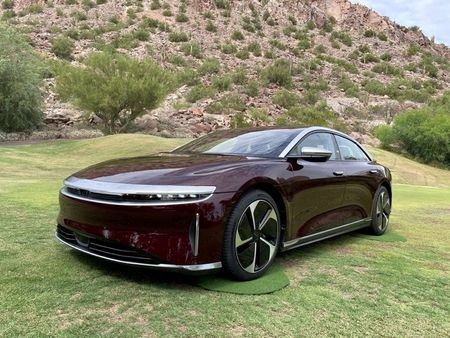 1
1 1
1
By Nick Carey
LONDON (Reuters) – Lucid will pursue more deals to sell its luxury electric vehicle (EV) equipment as it looks to grow its technology supply business, its top executive said on Wednesday, adding its recent deal with Aston Martin is just the start.
The U.S. EV firm will provide Aston with technology including a rear drive unit with twin motors, battery modules and software for integrating systems under the agreement with the British luxury carmaker announced on Monday.
The parts will come from Lucid’s plant in Arizona.
“This (deal) really kicks off that wing of the Lucid Group’s business,” CEO Peter Rawlinson told Reuters.
Rawlinson said last month Lucid was in talks on licensing and selling its powertrain technology, but declined to provide details on timing and potential partners.
Lucid’s initial focus will be on providing high-performance, ultra-high voltage technology that would not be suitable for the mass-market, reflected in the Aston deal, Rawlinson said.
However, he continued, its business licensing out parts should grow as the company moves to more mass-market models.
It plans a model to compete against Tesla’s mass-market option, Model 3, for the second half of the decade.
A growing business supplying technology to others would help Lucid, which like rival firms has been struggling with mounting losses, tightening cash reserves and a price war sparked by Tesla.
Lucid’s push to be a supplier to other carmakers is similar to that of Croatian electric sports car maker Rimac, which has also supplied parts to Aston and is working to provide parts for more mass-market models.
“Do we ever want to make a $25,000 car because that’s what it’s going to take to change the world?” Rawlinson said.
“I’m not sure if we want to be in that business, but licensing our tech to a company that could do that makes more sense.”
Aston and Lucid share a common shareholder in Saudi Arabia’s Public Investment Fund (PIF), but Rawlinson said the Saudi wealth fund played no role in the deal.
“Aston Martin had options and they chose quite independently what they felt is the best technology available on the planet,” he added.
(Reporting by Nick Carey; Editing by Emma Rumney)